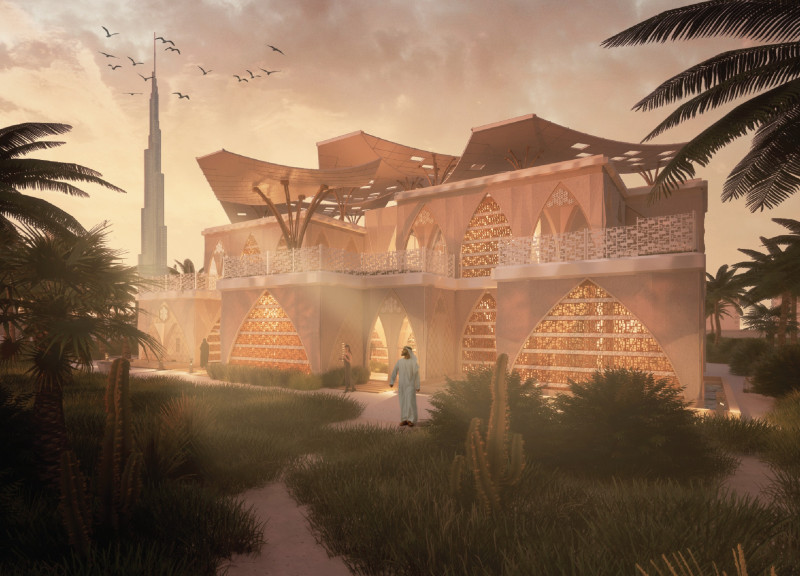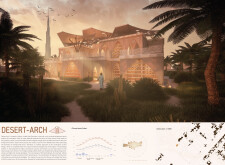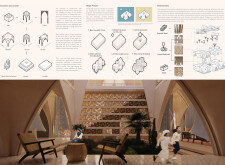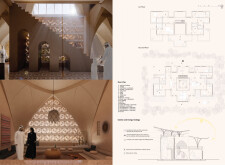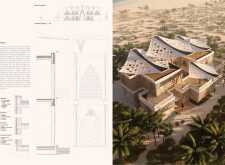5 key facts about this project
### Project Overview
Located in Dubai, United Arab Emirates, the Desert-Arch project presents a blend of contemporary architectural design and traditional Middle Eastern cultural elements within a rapidly modernizing urban context. The primary objective is to create adaptable living spaces that foster community ties while promoting sustainable living practices. The design integrates natural ventilation and energy-efficient principles to align with the environmental conditions of the region.
### Architectural Strategy
**Form and Functionality**
The structure features a combination of angular and curvilinear forms that reflect traditional Arabian aesthetics while fulfilling modern functional requirements. A key design element is the incorporation of Mashrabiyah, a lattice screen that allows natural light to penetrate while providing essential shading and privacy. The roof utilizes recycled wood and printed sand bricks to facilitate natural lighting and effective temperature control, with overhangs specifically designed to minimize solar heat gain.
**Material Selection**
Materiality is critically addressed in this project, focusing on sustainability, cultural significance, and local resource availability. Adobe is employed for its thermal insulation properties and historical relevance, while artificial sandstone provides lightweight structural support. The integration of recycled wood across various architectural features underscores sustainability efforts, and printed sand bricks enhance thermal efficiency alongside unique textural qualities. Cultural façade elements are incorporated to visually articulate the region’s heritage.
### Sustainability and User Engagement
**Energy Efficiency**
The building includes advanced cooling systems and water collection technologies, with a solar panel-equipped roof that supports renewable energy generation for operational needs. The spatial arrangement of units promotes natural airflow, enhancing comfort and reducing reliance on mechanical cooling solutions.
**Community Integration**
Desert-Arch emphasizes cultural resonance through thoughtful integration of local patterns and spatial configurations, ensuring that the development serves as both a residential space and a cultural hub. Designated areas for community activities enhance social connectivity, reflecting an understanding of the cultural practices essential to the local population. The flexible unit design strategically accommodates varying family sizes and lifestyle requirements, responding to the anticipated housing demands in Dubai's evolving urban landscape.


